One of the leading disruptive advancements in the financial sector has been the game-changing integration of AI in fintech, resulting in a dramatic transformation of the industry. With artificial intelligence and machine learning, fintech companies have refined numerous aspects of financial services, from customer experience to fraud detection. Integrating artificial intelligence (AI) into fintech represents a substantial and transformative shift in how financial services are conducted and delivered. It offers substantial benefits and paves the way for a future full of potential in the financial industry.
At Aloa, we've been at the forefront of this revolution, providing software outsourcing solutions to various fintech startups. We understand the transformative power of AI and how it can drive change within your business. With expertise in software outsourcing, we help businesses navigate this evolving landscape by leveraging AI's potential to streamline operations, deliver more personalized customer experiences, and accelerate growth.
In this blog post, we aim to provide a comprehensive overview of the top applications of AI in fintech. We will delve into the numerous ways AI is used to enhance financial services, offering insights into the benefits it brings. Whether you're part of a fintech startup looking to leverage AI, a financial institution exploring new technologies, or just someone interested in the future of finance, this blog will equip you with valuable information and insights.
Let's get started!
Importance of the Integrating AI in Fintech
The integration of AI into fintech presents a multitude of benefits for both businesses and their customers. Here are some of the primary advantages.
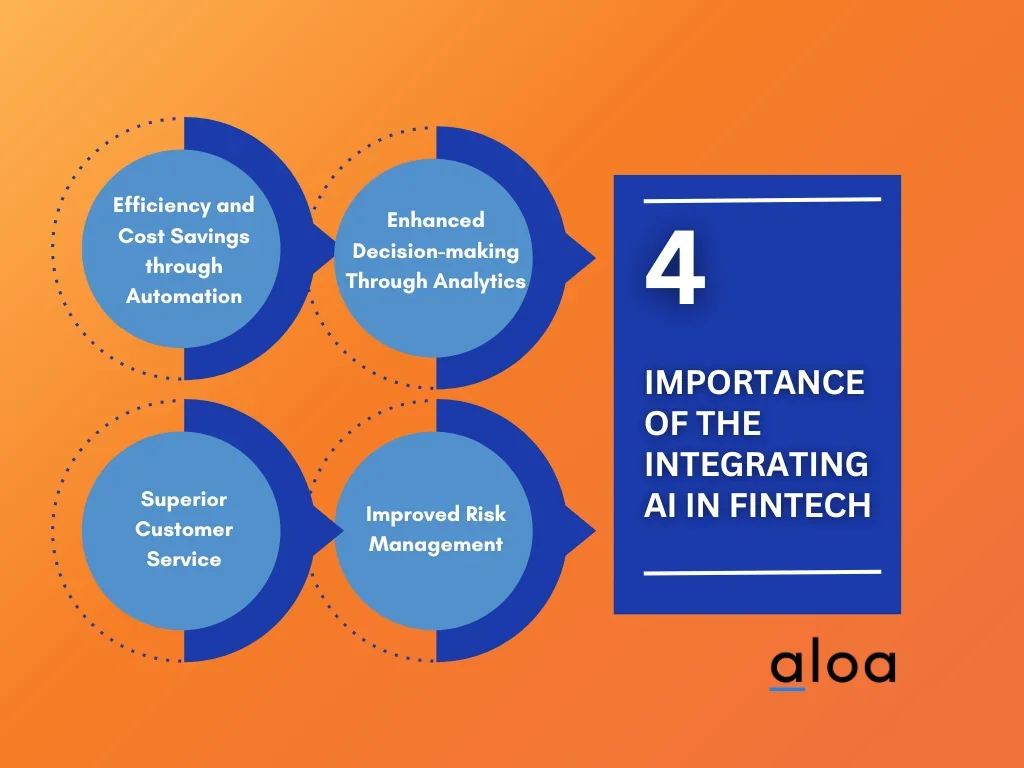
Efficiency and Cost Savings through Automation
AI allows financial institutions to automate their routine tasks, significantly reducing the workload on human employees. For instance, Robotic Process Automation (RPA), a form of AI, automates repetitive tasks such as data entry and email processing, leading to substantial cost savings and increased efficiency. Furthermore, by reducing the chance of human error, AI can lead to more accurate and reliable results.
Enhanced Decision-Making Through Analytics
AI systems can process vast amounts of financial data in real time, performing analytics to inform strategic decision-making. These insights can help identify potential risks, guide investments, and offer personalized financial advice. AI-powered data mining, for instance, can scrutinize customer behavior to optimize services and offerings.
Superior Customer Service
AI in customer service, through chatbots and virtual assistants, has drastically improved the customer experience. AI-powered advisors, often known as robo-advisors, can offer personalized advice based on customer data and respond to queries at any time of day. Natural language processing allows these chatbots to understand and communicate with customers more effectively, providing a more human-like interface.
To build such intelligent customer service tools, businesses often turn to experienced partners like an Inoxoft custom software developer. Their expertise in AI integration and user-centric design helps companies deliver smarter, faster, and more responsive support solutions tailored to their unique needs.
Improved Risk Management
AI can analyze a broader range of financial data and generate more accurate credit scores, aiding in more effective risk management. It can also identify suspicious activities, preventing fraud and money laundering. This enhanced risk analysis can benefit financial companies and their customers significantly.
Integrating AI into fintech is changing the game for financial institutions. The benefits of AI, from automation to enhanced decision-making and improved customer service, are pushing the boundaries of what's possible in the finance industry. The future of AI in fintech promises even more transformative changes, and we can expect to see its role becoming ever more vital in the coming years.
Top 10 Applications of AI in Fintech
In recent years, the use of artificial intelligence (AI) in fintech industries has transformed the way financial services are delivered. AI, utilizing algorithms and data analysis, has revolutionized various aspects of financial technology, enhancing efficiency, accuracy, and customer experience. Here are the top 10 applications of AI in fintech, highlighting their benefits.
Fraud Detection
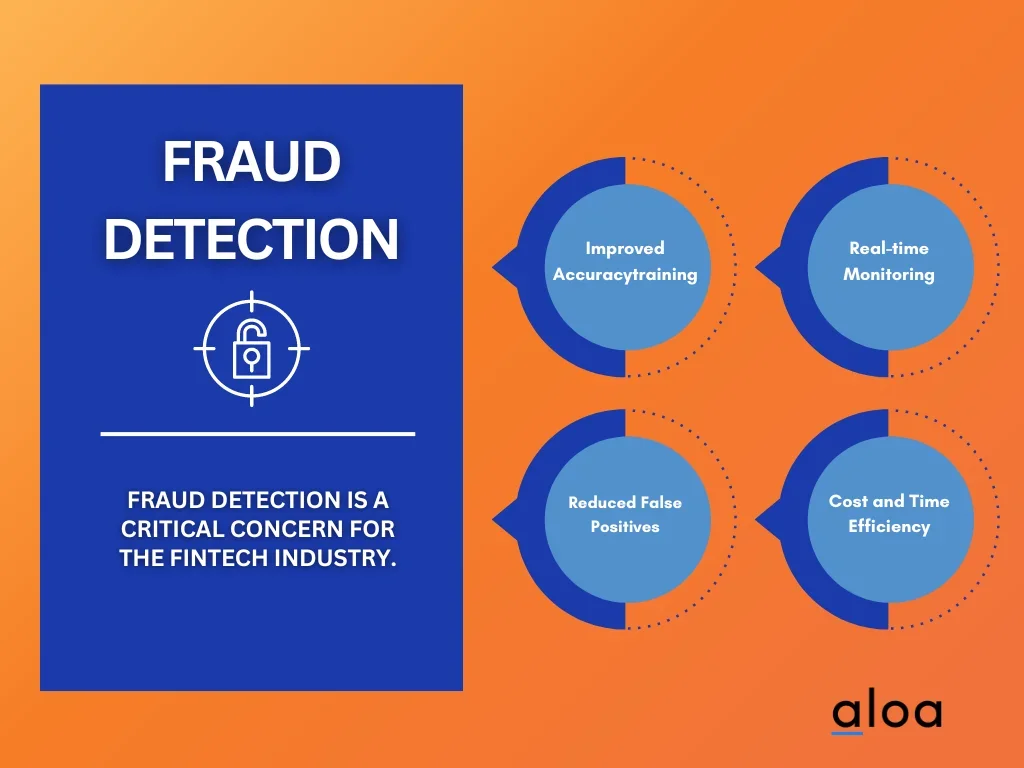
Fraud detection is a critical concern for the fintech industry, and using artificial intelligence (AI) has proven invaluable in combating fraudulent activities. Fintech companies use financial fraud detection software solutions that are integrated with AI algorithms and data analysis to detect and prevent fraudulent transactions more effectively than ever before.
Benefits
- Improved Accuracy: AI algorithms can analyze vast amounts of data, including historical transaction records, customer behavior patterns, and external factors, to identify anomalies and potential fraud with higher accuracy.
- Real-time Monitoring: AI-powered fraud detection software can monitor financial transactions in real-time, instantly flagging suspicious activities and enabling immediate action.
- Reduced False Positives: AI algorithms learn from historical data and continuously improve, reducing the number of false positives and minimizing the impact on legitimate transactions.
- Cost and Time Efficiency: AI-driven fraud detection automates the process, eliminating manual review and significantly reducing the time and effort required to detect and investigate fraudulent activities.
- Enhanced Security: With AI algorithms constantly evolving and adapting, fintech industries can stay one step ahead of fraudsters and protect sensitive customer data.
Risk Assessment
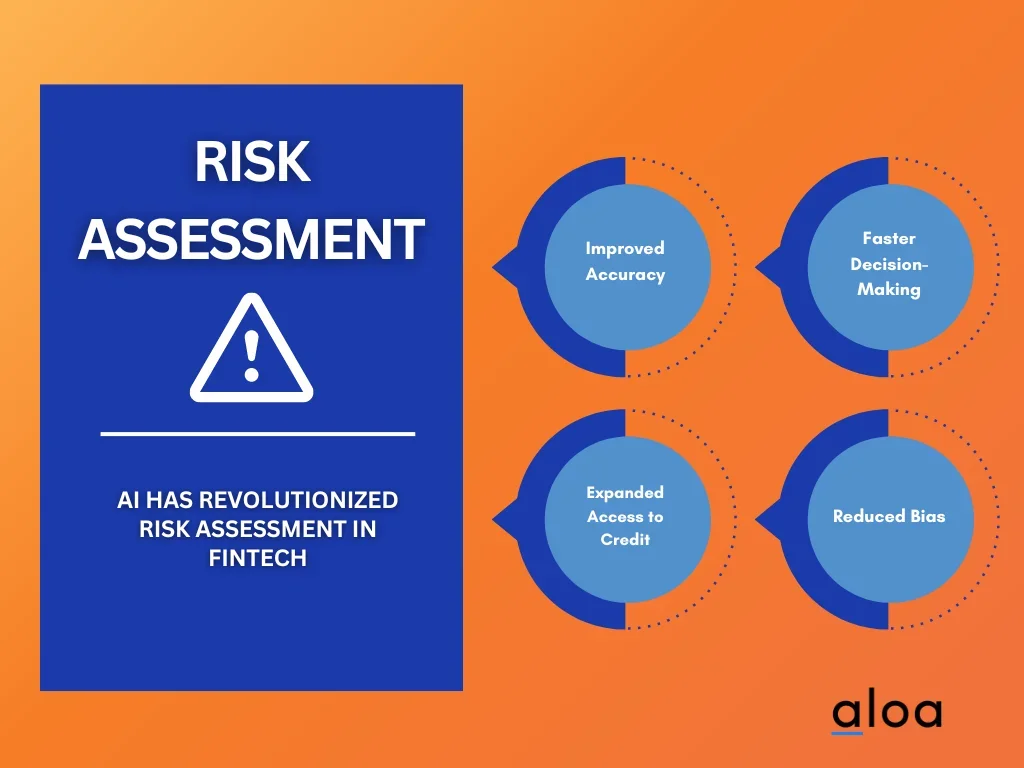
AI has revolutionized risk assessment in fintech, enabling more accurate and efficient evaluation of creditworthiness and loan eligibility. AI-powered risk assessment models have transformed the lending landscape by analyzing a wide range of data points and leveraging machine learning (ML) techniques.
Benefits
- Improved Accuracy: AI algorithms can assess credit risk using a comprehensive data set, including credit history, income, employment status, and other relevant factors. This leads to more accurate risk assessments and better-informed lending decisions.
- Faster Decision-Making: Traditional risk assessment processes can be time-consuming and manual. AI streamlines the evaluation process, enabling faster loan approvals or rejections, benefiting lenders and borrowers.
- Expanded Access to Credit: AI-driven risk assessment models can evaluate the creditworthiness of individuals and small businesses that traditional methods may have overlooked. This promotes financial inclusion and provides opportunities for those with limited credit histories.
- Reduced Bias: AI algorithms can help mitigate bias in risk assessment by relying on objective data rather than subjective factors. This promotes fair lending practices and reduces discrimination.
- Continuous Learning: AI-powered risk assessment models can adapt and learn from new data, improving accuracy and effectiveness.
Chatbots and Virtual Assistants
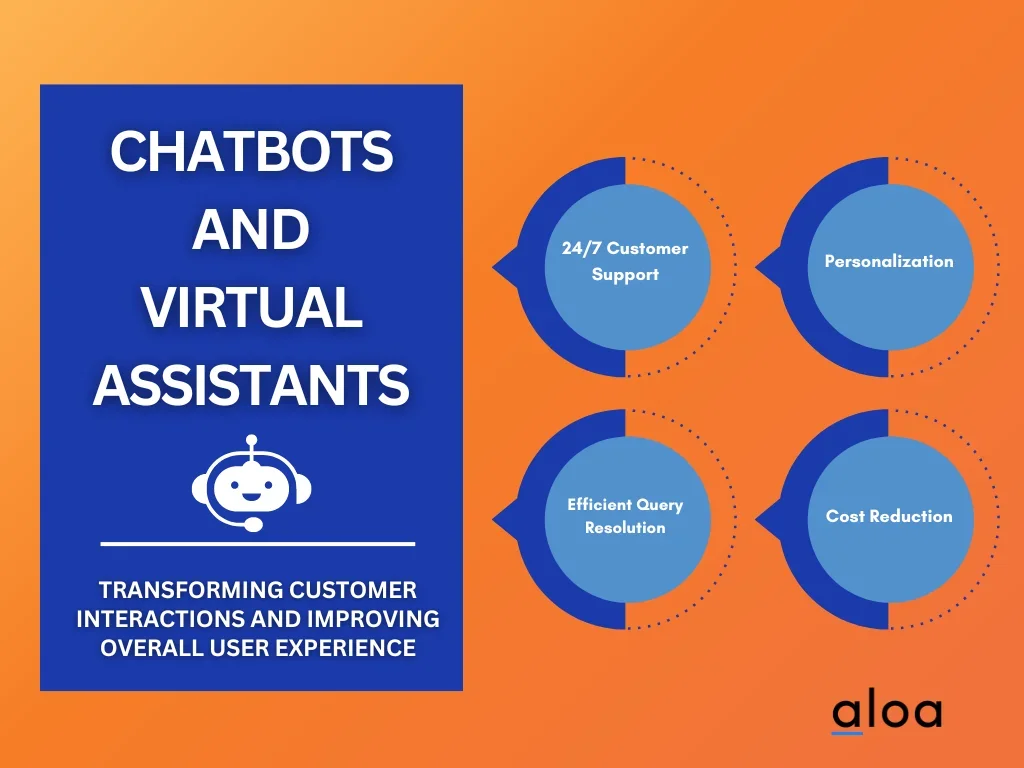
AI-powered chatbots and virtual assistants have become increasingly prevalent in the fintech industry, transforming customer interactions and improving overall user experience.
Benefits
- 24/7 Customer Support: Chatbots can provide round-the-clock customer support, addressing inquiries and resolving issues in real-time without human intervention.
- Personalization: AI-driven chatbots can analyze customer data and preferences to deliver personalized recommendations and assistance, enhancing customer satisfaction and engagement.
- Efficient Query Resolution: Chatbots can quickly and accurately respond to customer queries, saving customers and customer service teams time.
- Cost Reduction: By automating customer support, fintech companies can significantly reduce operational costs associated with maintaining large customer service teams.
- Seamless Integration: Chatbots can seamlessly integrate into banking apps and websites, providing customers with a cohesive and user-friendly experience.
Algorithmic Trading
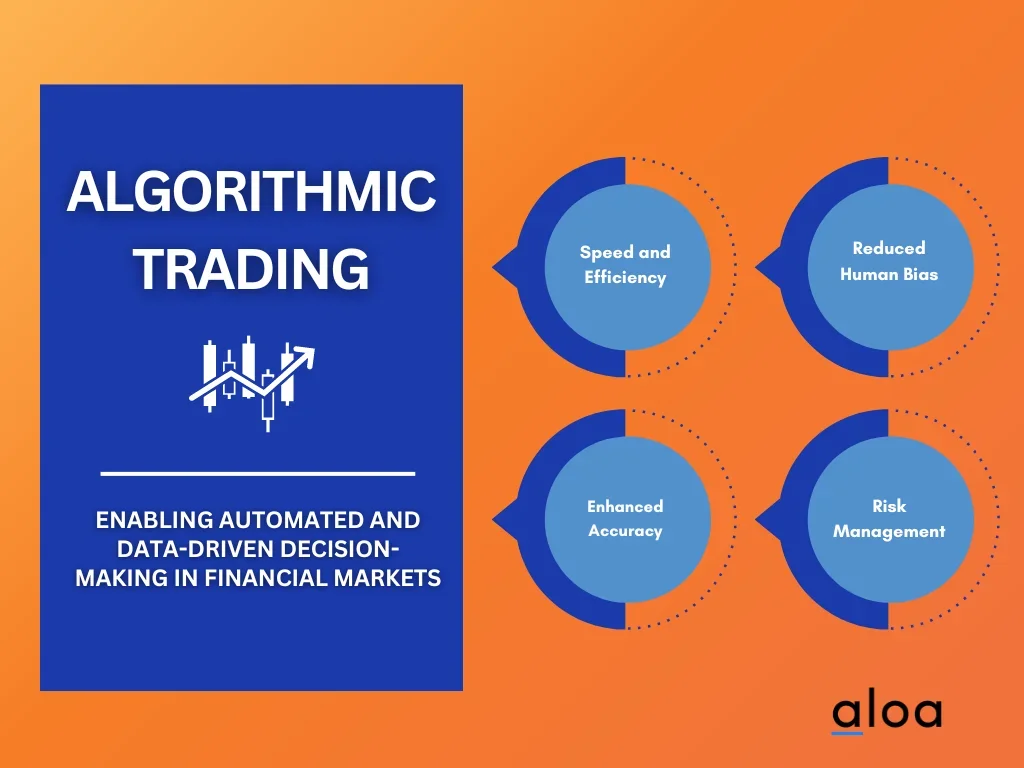
AI algorithms have revolutionized the field of algorithmic trading, enabling automated and data-driven decision-making in financial markets.
Benefits
- Speed and Efficiency: AI algorithms can analyze vast amounts of financial data and execute trades in real-time, allowing faster and more efficient trading decisions.
- Reduced Human Bias: Algorithmic trading eliminates emotional and subjective biases often associated with human traders, leading to more objective and data-driven investment strategies.
- Enhanced Accuracy: AI algorithms can analyze complex market patterns and historical data to identify potential trading opportunities and predict market trends more accurately.
- Risk Management: AI-powered trading systems can implement risk management strategies automatically, including setting stop-loss orders and managing portfolio diversification.
- Liquidity Provision: Algorithmic trading algorithms can provide liquidity to the market, improving overall market efficiency and reducing bid-ask spreads.
Robo-Advisors
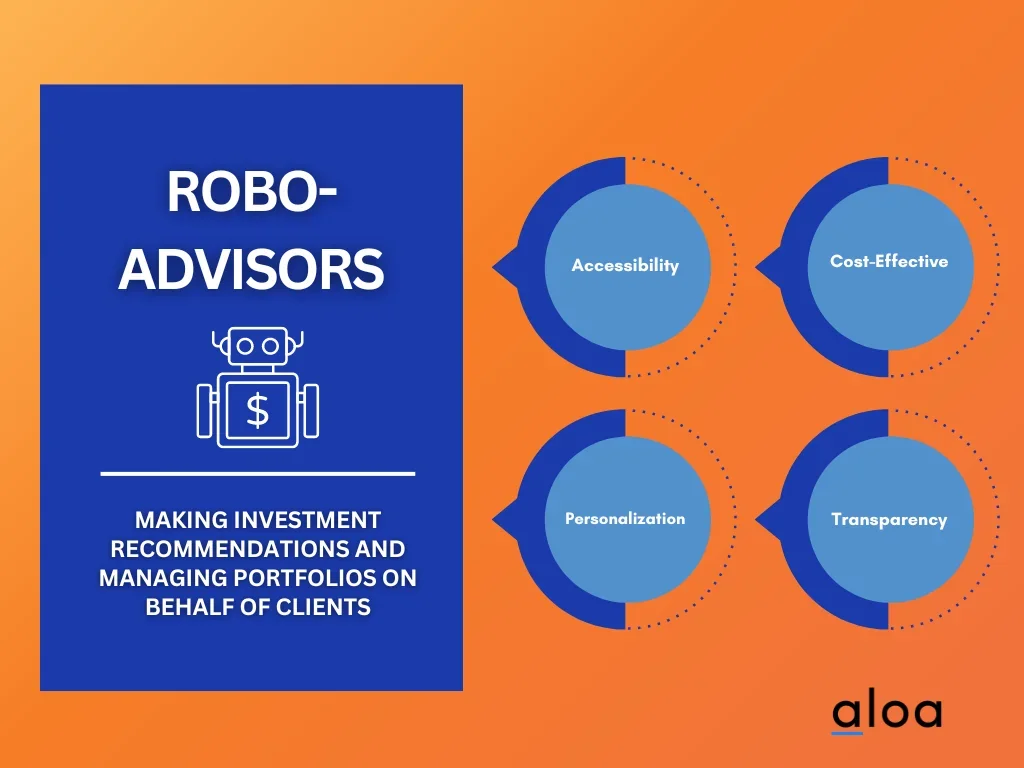
Robo-advisors are AI-powered platforms that provide automated financial advisory services, making investment recommendations and managing portfolios on behalf of clients.
Benefits
- Accessibility: Robo-advisors make financial planning and investment services more accessible to a broader audience, including individuals with limited financial knowledge or resources.
- Cost-Effective: Robo-advisors typically have lower fees than traditional financial advisors, making investment services more affordable for investors.
- Personalization: AI algorithms analyze user data, financial goals, and risk tolerance to provide personalized investment recommendations tailored to individual needs.
- Continuous Monitoring: Robo-advisors continuously monitor investment portfolios and adjust based on market conditions, ensuring that investments remain aligned with the client's objectives.
- Transparency: Robo-advisors provide transparent reporting and real-time portfolio performance updates, giving investors visibility into their investments at any time.
Natural Language Processing (NLP)
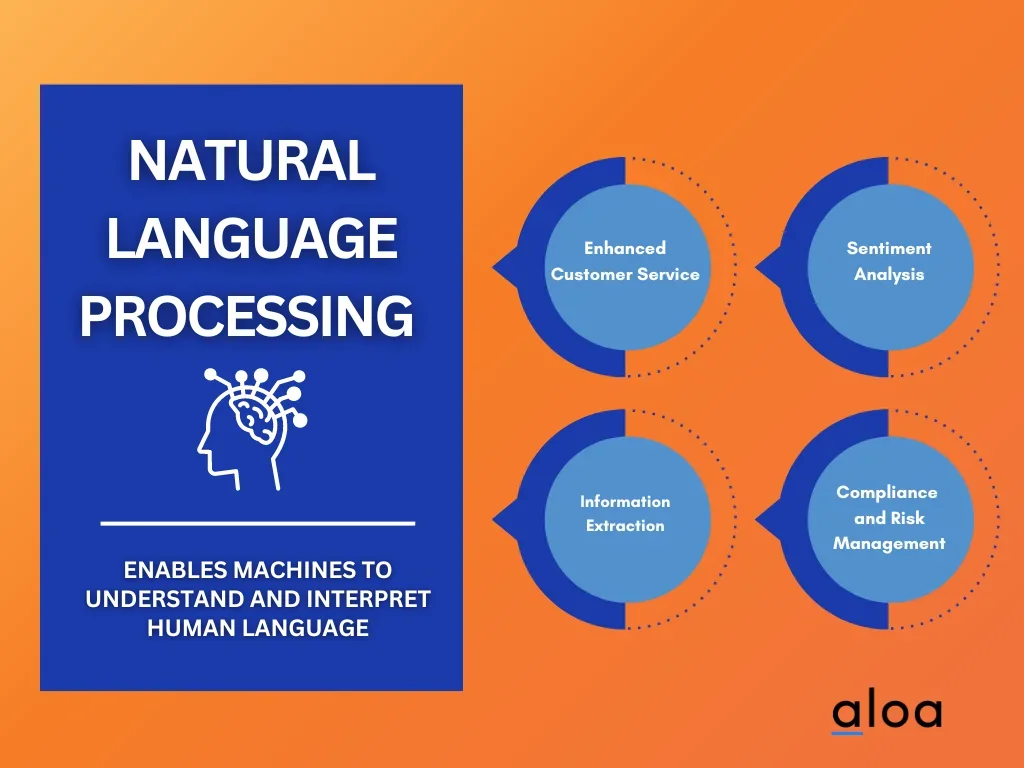
NLP is a branch of AI that enables machines to understand and interpret human language. In the fintech industry, NLP is utilized for various applications, such as customer service, sentiment analysis, and information extraction.
Benefits
- Enhanced Customer Service: NLP-powered chatbots and virtual assistants can understand and respond to natural language queries, providing more intuitive and conversational customer interactions.
- Sentiment Analysis: NLP algorithms can analyze customer sentiment from social media posts, customer reviews, and other textual data, providing valuable insights for companies to improve their products and services.
- Information Extraction: NLP algorithms can extract essential information from unstructured data sources, such as financial documents or news articles, facilitating data analysis and decision-making processes. This is valuable in areas like automated bank statement processing, where large volumes of financial data need to be converted into structured formats.
- Compliance and Risk Management: NLP algorithms can analyze textual data for regulatory compliance, identifying potential risks and ensuring adherence to legal and industry standards.
- Market Research and Trend Analysis: NLP algorithms can analyze textual data from various sources to identify market trends, consumer preferences, and competitor analysis, aiding in market research and strategic decision-making.
Credit Scoring and Underwriting
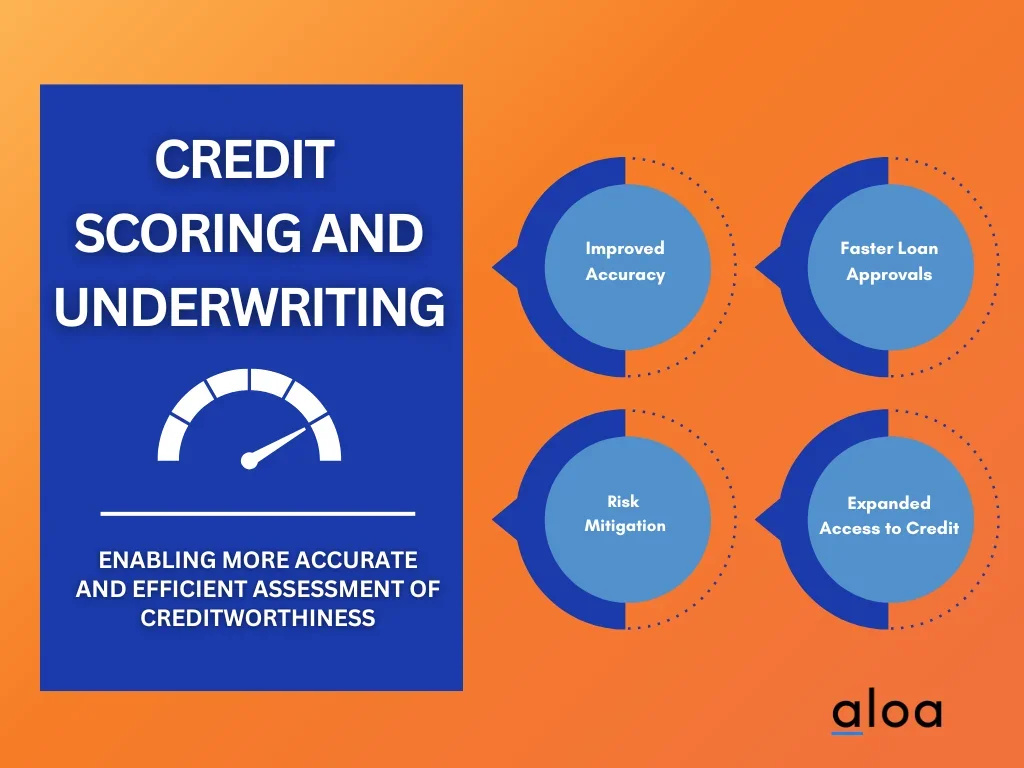
AI has significantly impacted the fintech industry's credit scoring and underwriting processes, enabling more accurate and efficient assessment of creditworthiness.
Benefits
- Improved Accuracy: AI algorithms can analyze various data points, including credit history, income, employment, and alternative data sources, resulting in more accurate credit scores and underwriting decisions.
- Faster Loan Approvals: AI-powered credit scoring models can automate and expedite the loan approval process, reducing the time it takes for borrowers to receive loan decisions.
- Risk Mitigation: AI algorithms assess credit risk more comprehensively, identifying potential default risks and helping lenders make informed decisions to mitigate lending risks.
- Expanded Access to Credit: By incorporating alternative data sources, AI algorithms can evaluate the creditworthiness of individuals with limited credit histories or underserved populations, promoting financial inclusion.
- Streamlined Underwriting Process: AI automates various underwriting tasks, such as document verification and data analysis, streamlining the underwriting process and reducing manual effort.
Regulatory Compliance
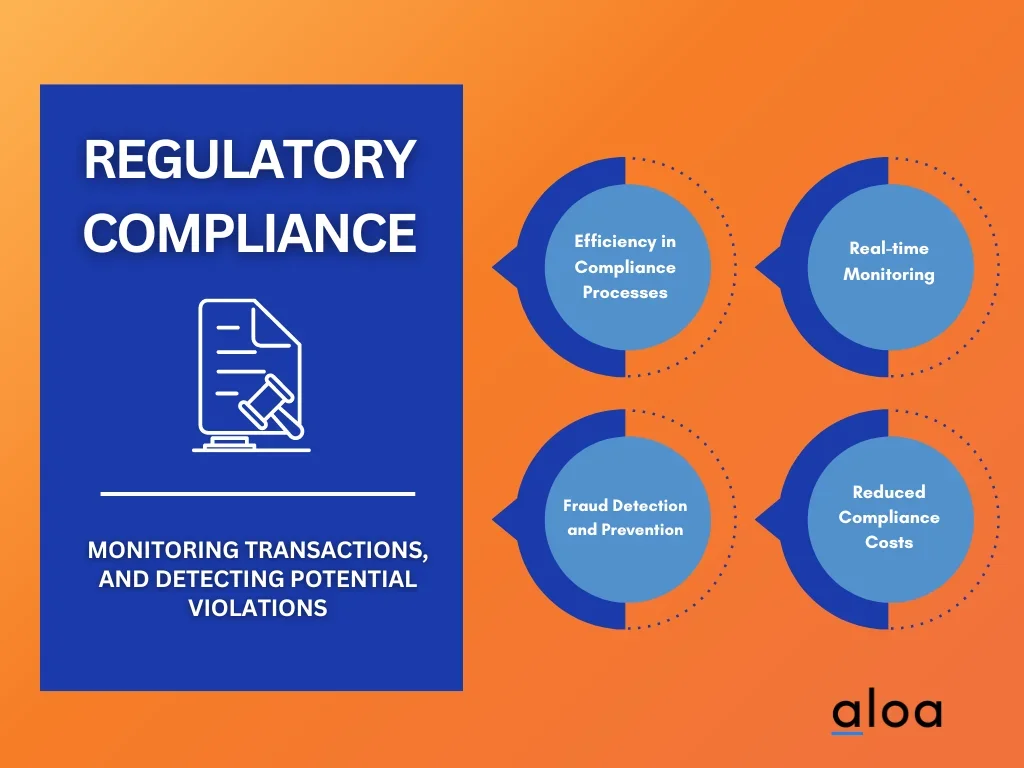
AI ensures regulatory compliance within the fintech industry by automating compliance processes, monitoring transactions, and detecting potential violations.
Benefits
- Efficiency in Compliance Processes: AI can automate compliance tasks like KYC (Know Your Customer) and AML (Anti-Money Laundering) checks, reducing manual effort and streamlining compliance processes.
- Real-time Monitoring: AI-powered systems can monitor financial transactions in real time, flagging suspicious activities that may violate regulatory requirements.
- Fraud Detection and Prevention: AI algorithms can detect patterns and anomalies in financial transactions, helping identify potential fraudulent activities and aiding in fraud prevention efforts.
- Reduced Compliance Costs: AI automates compliance tasks, reducing the need for manual labor and associated costs while ensuring compliance with regulatory standards.
- Audit Trail and Reporting: AI-powered systems maintain detailed records and generate reports, providing an audit trail for compliance purposes and facilitating regulatory reporting.
Personalized Financial Planning
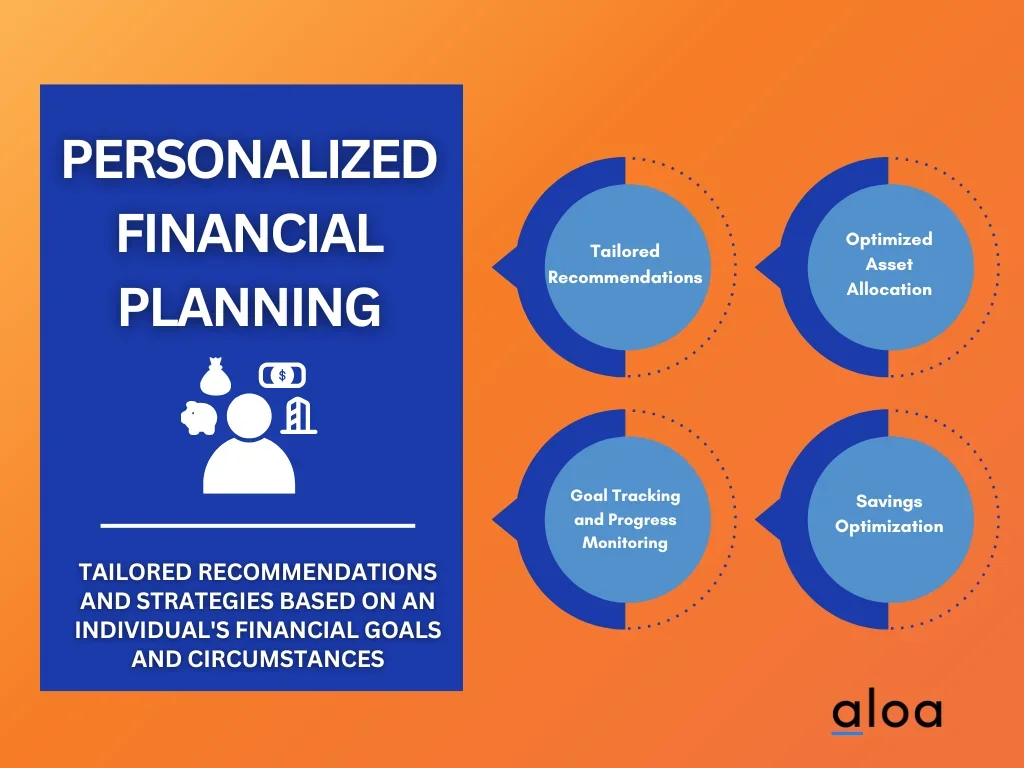
AI enables personalized financial planning by leveraging data analysis and machine learning algorithms to provide tailored recommendations and strategies based on an individual's financial goals and circumstances.
Benefits
- Tailored Recommendations: AI algorithms analyze individual financial data, goals, and risk tolerance to provide personalized investment, savings, and retirement planning recommendations.
- Optimized Asset Allocation: AI-powered financial planning tools optimize asset allocation based on the individual's risk profile and investment objectives, maximizing potential returns while managing risk.
- Goal Tracking and Progress Monitoring: AI platforms can track progress towards financial goals, providing real-time updates and personalized insights to help individuals stay on track.
- Savings Optimization: AI algorithms can analyze spending patterns and financial habits to identify areas for savings optimization and suggest personalized budgeting and financial discipline strategies.
- Education and Financial Literacy: AI-powered financial planning apps can provide educational content and resources to improve financial literacy and empower individuals to make informed financial decisions.
Customer Segmentation and Targeting
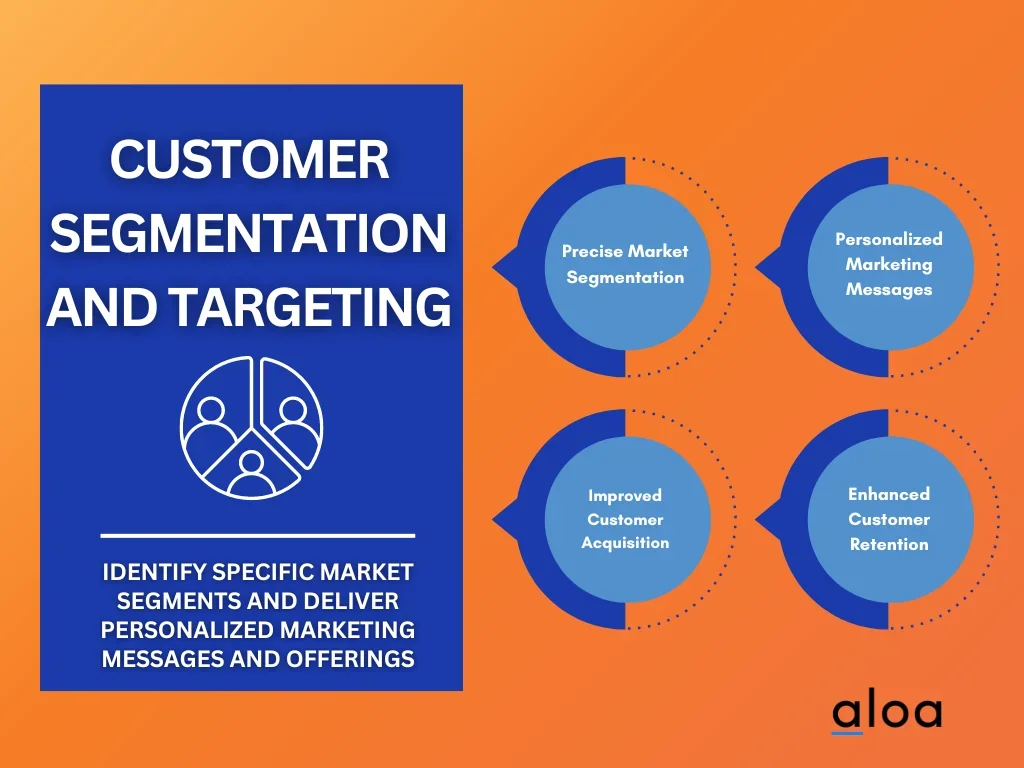
AI facilitates customer segmentation and targeting in the fintech industry by analyzing customer data to identify specific market segments and deliver personalized marketing messages and offerings.
Benefits
- Precise Market Segmentation: AI algorithms analyze customer data, behavior, and preferences to segment customers based on specific criteria, enabling targeted marketing campaigns.
- Personalized Marketing Messages: AI-powered systems can deliver personalized marketing messages to individual customers, increasing engagement and conversion rates.
- Improved Customer Acquisition: AI algorithms can identify potential customers with a high likelihood of conversion, helping fintech companies focus their marketing efforts on the most promising leads.
- Enhanced Customer Retention: AI-driven customer segmentation enables personalized customer experiences, fostering loyalty and improving customer retention rates.
- Data-Driven Decision Making: AI-powered customer segmentation and targeting provide valuable insights into customer behavior, preferences, and market trends, informing strategic decision-making processes.
Examples of AI-Powered Fintech
Here are five examples of AI-powered fintech companies that are making a significant impact in the industry:
Betterment
Betterment is an online investment platform that utilizes AI algorithms to provide automated financial advice and portfolio management. Their AI-powered robo-advisor analyzes user data, financial goals, and risk tolerance to create personalized investment portfolios. Betterment aims to optimize returns and minimize risk through intelligent asset allocation strategies.
Feedzai
Feedzai is a leading provider of fraud detection and prevention solutions for the fintech industry. Their AI platform uses advanced machine learning techniques to analyze large volumes of transactional data in real time. Feedzai's AI algorithms help financial institutions identify and prevent fraudulent activities by detecting patterns and anomalies, protecting both businesses and customers.
Plaid
Plaid is a fintech company that specializes in data connectivity solutions. Their AI-powered platform enables secure and seamless integration between financial institutions and fintech applications. By leveraging AI algorithms, Plaid simplifies accessing and using financial data, providing developers and businesses with the necessary tools to build innovative financial applications.
Ant Financial
Ant Financial, an affiliate of Alibaba Group, is a leading fintech company based in China. Their AI-powered platform offers various financial services, including mobile payments, wealth management, and lending. Ant Financial utilizes AI algorithms to analyze user data and provide millions of users with personalized financial recommendations and services.
Ayden
Adyen is a global payment platform that leverages AI technology to optimize payment processing and provide enhanced customer experiences. Their AI algorithms analyze transaction data to detect and prevent fraud, reduce payment processing errors, and deliver personalized payment options to customers. Adyen's AI-powered solutions enable businesses to streamline payment operations and drive growth.
Key Takeaway
Integrating AI in fintech is crucial for startups and businesses looking to thrive in the rapidly evolving financial landscape. By harnessing the power of AI algorithms and data analysis, companies can unlock many benefits. AI enables startups to automate processes, improve fraud detection and risk assessment accuracy, enhance customer experiences through personalized services, and optimize decision-making in areas like trading and investment. It provides a competitive edge by increasing efficiency, reducing costs, and driving innovation.
To leverage the potential of AI in fintech and explore tailored solutions for your business, reach out to [email protected]. Our experts are ready to assist you in navigating the AI-driven future of the financial industry.

